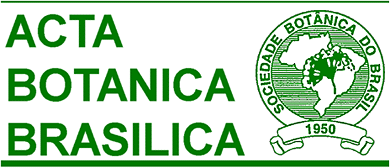Biological contamination is currently one of the main causes of biodiversity loss on the planet. The aim of this study was to evaluate the impacts caused by P. juliflora invasion on caatinga phytodiversity in Monteiro Municipality, in both the adult stratum and natural regeneration. Twenty plots of 400 m² were set up, 10 in a conserved caatinga fragment (Environment I) and 10 in a caatinga area invaded by P. juliflora (Environment II). The invaded area was much poorer in relation to the conserved area for all parameters investigated. The impacts caused by the alien species were felt in structure as well in community biological diversity. The relative density of P. juliflora in the adult stratum of the invaded area was ca. 90%, which reflects its capacity to compete and eliminate other species. The Shannon-Weaver diversity index (H') had values of 2.81 and 0.61 for the adult component of Environments I and II, respectively. For natural regeneration, this index was 2.31 and 1.14 for the same sites. It was concluded that P. juliflora forms dense populations that grow along with native species, severely affecting the floristic composition, diversity and structure of autochthonous communities.
biological contamination; Prosopis juliflora; biodiversity loss; caatinga











